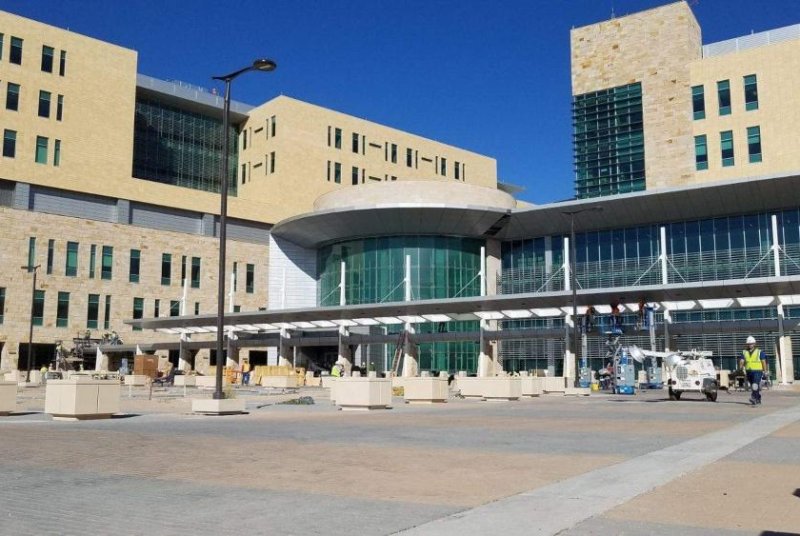The newly renovated William Beaumont Army Medical Center at Fort Bliss, Texas, pictured in November 2019, was the site of a 2015 shooting of a physician. Photo by Randy Cephus/U.S. Army Corps of Engineers
April 9 (UPI) -- U.S. military hospitals and clinics are vulnerable to theft, damage and terrorism, according to a Department of Defense Inspector General audit released Thursday.
Inspectors who prepared the audit visited eight military medical treatment facilities and found that while all had implemented local physical security measures, they also identified security weaknesses at each facility that could allow unauthorized access to certain areas.
Auditors found security controls allowed personnel and volunteers to access medical centers at all hours or to enter restricted areas without authorization, giving them access to equipment, pharmaceuticals and patient information.
The concern includes areas like pharmacies. In at least one instance, three unauthorized personnel used a badge to access the narcotics vault.
The audit also found that fuel storage tanks and hospital generators weren't secured properly, increasing the risk of "damage, sabotage or acts of terrorism."
The report opens by pointing out recent events that underscore the need for increased security protocols at health care facilities -- including the 2015 shooting of a doctor near the William Beaumont Army Medical Center on Fort Bliss, Texas.
The audit notes security concerns within the healthcare industry generally, including the fact that in 2018 there were 647 armed robberies of controlled substances from pharmacies, according to the the Occupational Safety and Health Administration reported that the rate of serious workplace violence incidents on average was four times greater for health care workers than in private industry.
Concerns about security at health care facilities have grown amid the coronavirus pandemic, stories of theft of personal protective equipment from hospitals and the March arrest of a man authorities believe intended to bomb a Kansas hospital.
Among other changes, the report recommends the Defense Health Agency direct facilities to remove access to sensitive areas for unauthorized staff and run quarterly system reviews to make it is appropriately restricted, review security controls at community-based clinics under its control, assess generator and fuel storage security at each site and issue guidance that requires personnel to enter and exit through specific sets of doors.















